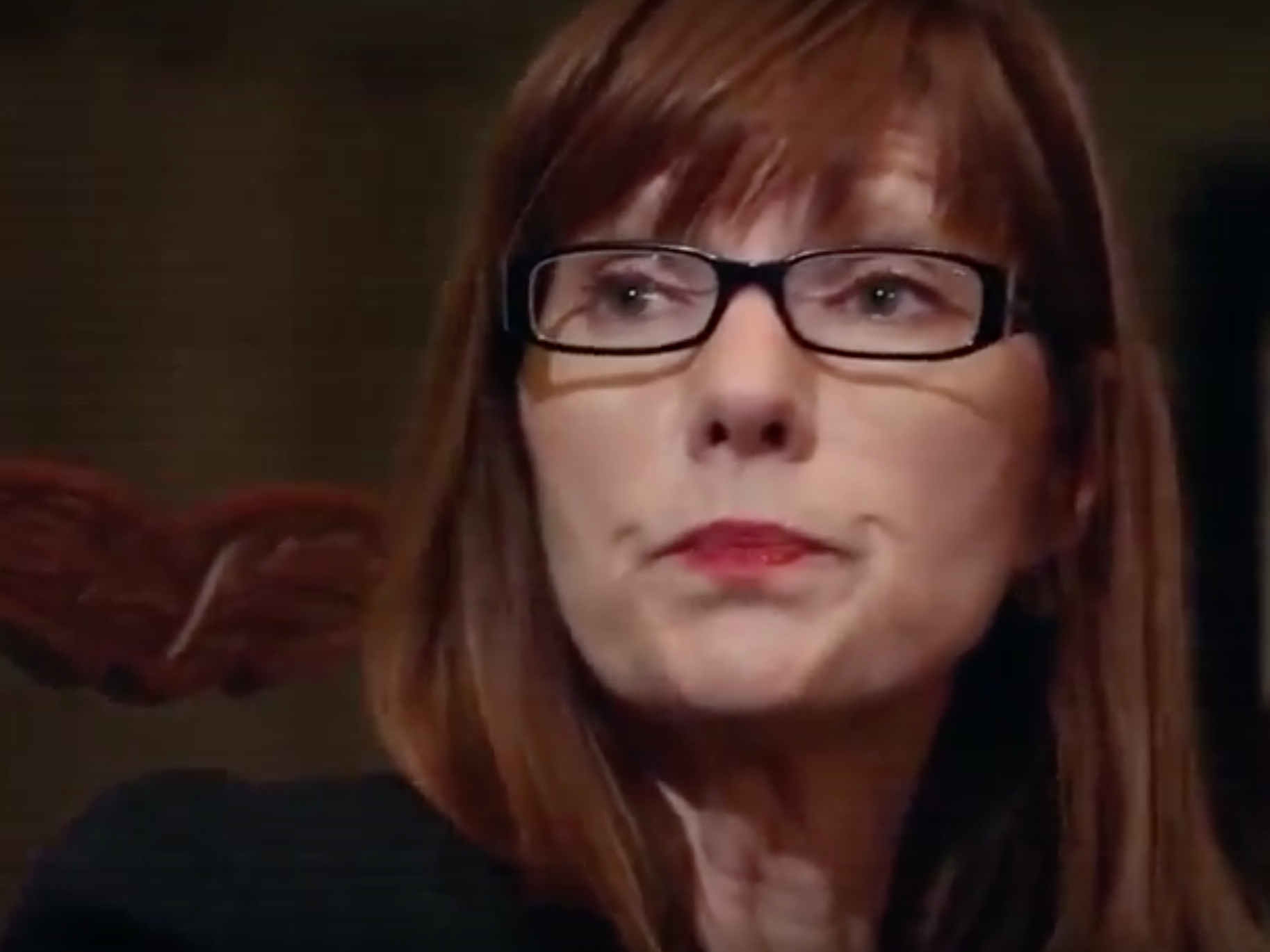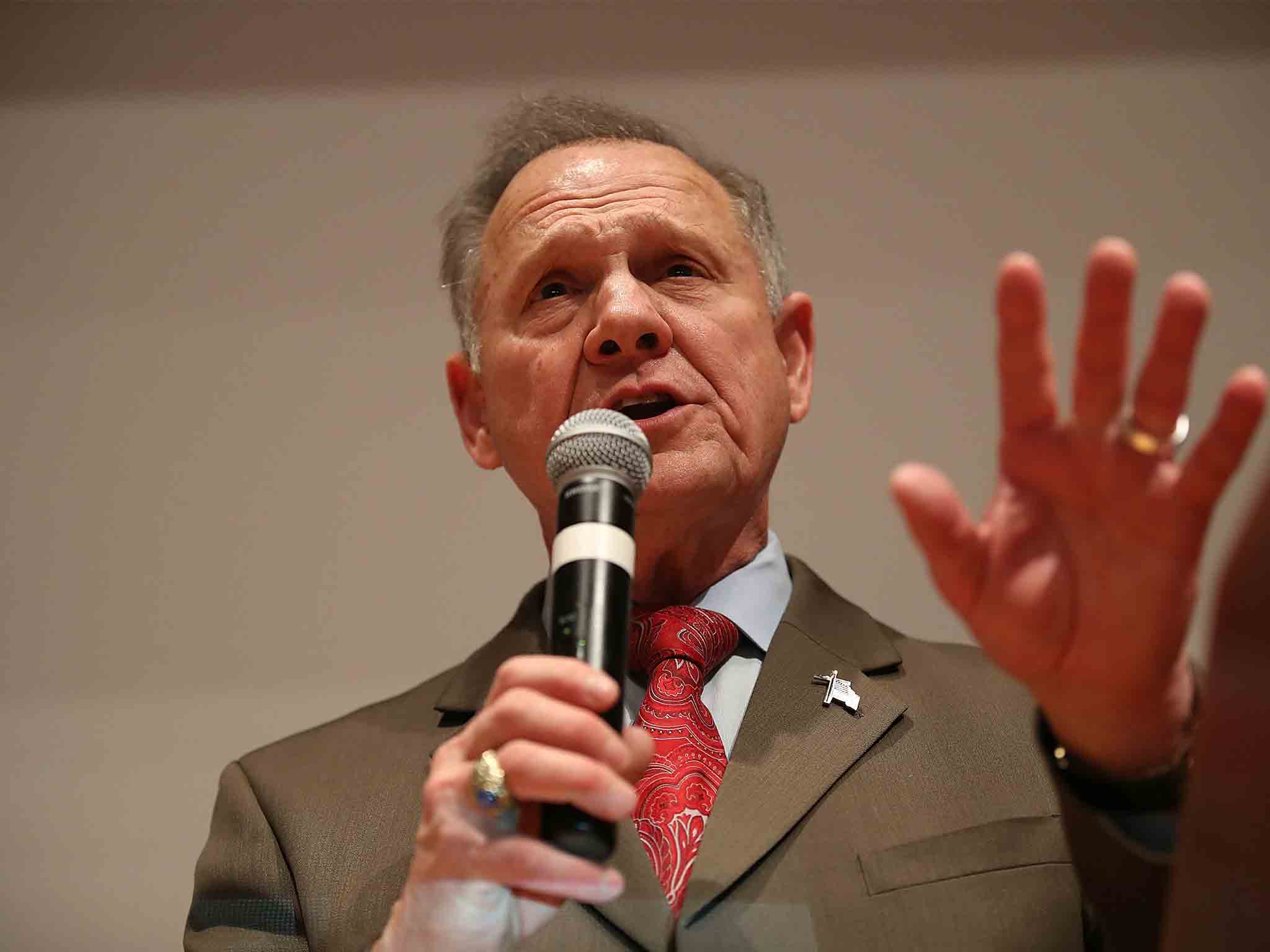Roy Moore accuser says she's running for office in Florida to get women's voices heard
Despite some growing pains, Deborah Gibson says she's headed for the Florida House

Your support helps us to tell the story
From reproductive rights to climate change to Big Tech, The Independent is on the ground when the story is developing. Whether it's investigating the financials of Elon Musk's pro-Trump PAC or producing our latest documentary, 'The A Word', which shines a light on the American women fighting for reproductive rights, we know how important it is to parse out the facts from the messaging.
At such a critical moment in US history, we need reporters on the ground. Your donation allows us to keep sending journalists to speak to both sides of the story.
The Independent is trusted by Americans across the entire political spectrum. And unlike many other quality news outlets, we choose not to lock Americans out of our reporting and analysis with paywalls. We believe quality journalism should be available to everyone, paid for by those who can afford it.
Your support makes all the difference.One of the first women to accuse failed Alabama Senate candidate Roy Moore of pursuing her when she was a teenager has announced she is running for office, spurred by the power of the #MeToo movement.
Deborah Gibson, a small business owner in Delray Beach, Florida, helped the Washington Post break the story of Mr Moore’s alleged abuse of underage girls last October. Now, she is using her new-found notoriety to propel her towards the state House.
“I think that the touch point of last autumn for me was, ‘Ok, that's a point in history, but what are the action steps so that it isn't lost in the fray? So that it isn't a six-hour news cycle that we get tweeted out of?” she told The Independent.
For Ms Gibson, a talkative 54-year-old who still maintains traces of her native Alabama accent, the answer was clear: Get more women into office. That’s why she’s mounting a bid to replace Republican Representative Bill Hager, who will reach his term limit in 2018 – and encouraging other women to follow suit.
"I absolutely encourage other women to run,” she said. “But I would say that the person running needs to have a pretty thick skin, because the media will see what you're made of."
Ms Gibson knows the pressure of media scrutiny well. She was one of the first people to tell the Post that Mr Moore had pursued her as a teenager – though she stipulated that the relationship was consensual, and never progressed past kissing. Other women, however, claimed Mr Moore had sexually abused them as minors. He has denied all allegations against him.
When the allegations began straining Mr Moore’s campaign, Ms Gibson says she started receiving hate mail – and even death threats – from his supporters. She filed a police report in December claiming she had received messages threatening to “get her,” and warning she would “get hers,” according to the Palm Beach Post.

But Ms Gibson was not deterred by the abuse for long. She now believes that many detractors of the Me Too movement – which brought forth sexual abuse allegations against everyone from Mr Moore to film producer Harvey Weinstein – don’t understand what the moment is truly about. The accusers, she said, are not asking for all men to be fired or thrown out of office.
"We're just asking to step into our equality,” she said. “[And] I thought, ‘Well why don't I?’"
Many women appear to be asking themselves similar questions. Rachel Crooks – one of more than a dozen women who have accused Donald Trump of sexual misconduct – is running for the state legislature in Ohio. She told Cosmopolitan she decided to run, in part, because she felt like her story had been ignored in the 2016 election.
“I think my voice should have been heard then, and I'll still fight for it to be heard now,” she said.
Mr Trump has denied all allegations of sexual misconduct.
Nearly 500 women have announced their intention to run for Congress this year, according to data compiled by Politico – up from the 312 who filed to run in 2016.At least 47 women have declared their intent to run for the 17 available gubernatorial seats.
This surge of new faces entering politics does not come without its missteps. Ms Gibson experienced her own growing pains when she switched her party registration from Republican to Democratic in February. Under Florida state law, candidates must be registered in a party for a full year before running in its primary.
Ms Gibson has had to shift her strategy and run without a party affiliation, meaning she will skip the primaries and go straight to the general election in November. Despite these hiccups, she remains optimistic about getting more women to run.
"If this is your heart for how you'll serve publicly, please step in, get engaged,” she said. “And if you make mistakes like I have, learn from them. There's more than one way to skin a cat.”
Subscribe to Independent Premium to bookmark this article
Want to bookmark your favourite articles and stories to read or reference later? Start your Independent Premium subscription today.
Join our commenting forum
Join thought-provoking conversations, follow other Independent readers and see their replies
Comments